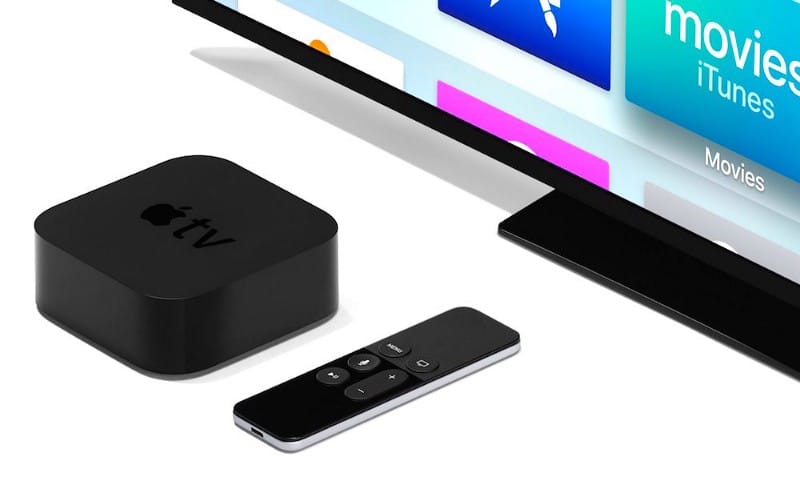Apple and the Content Business

Apple Inc. is the largest company in the world. They are perched atop the valuation list nearing a trillion dollars in market value, which would be the first company to ever do so and could possibly happen in 2018.
One of the main reasons for their success is their uncompromising care, attention, and quality in creating the worlds best products, that continuously draws me and millions of others to them.
Apple’s modus operandi is clarity and focus on only what is the most important, both in their products and the company, by getting ride of everything that they don’t consider essential. This laser focus has kept Apple on top as other competitors would throw a bunch of products against the wall, with hundreds of different features that had no real value except to use in a marketing campaign claiming the other guy (a.k.a. Apple) doesn’t have this ‘feature’. But Apple doesn’t stray and wouldn’t add something to their products just because they could. They only add feature if it enhances the experiences for the user in a tangible way. They are not susceptible to fads and they don’t chase features. Or at least the use not to.
Apple is a different company this decade than it was the previous decade. Aspects of the company have changed, either by circumstance or by choice. Their rise to the most profitable and most recognizable company in the world leads to a new point of view of how to see the world and their place in it. At the same time it also needs to change and evolve to stay not just competitive, but to continue to grow. Apple has a track record of thinking further ahead than many other companies and an ability to focus on the correct trends for the future. But over the past few years, they are starting to be cracks in Apple’s ability to stay true to themselves. The ability to focused on, care for, and build quality products has hit some rough spots as of late.
It seems as they pursue growth, they are straying away from what they do best. I totally believe Apple must research new areas to continue growing and compete in new markets. They absolutely must do that. But it seems as they exploring areas that are further and further away from their core competencies, personal tech products, the worse they are at it.
From music, to fashion tech, to autonomous cars, they are juggling too many disparate things, that everything suffers. They keep dabbling in areas that they do not have full competency with and distract away from their main products that are currently selling. In both 2014 and 2015 these distractions seemed to affect the rest of their product lineup from the (beta) version of the watch they released, to the software on all product lines feeling less than polished, to a jumbled Apple Music launch, to a barley suitable TV product after years of waiting. Fortunately, they have recently refocused on the watch as tech, scaled back the car program, and solidified Apple Music’s scale and approach. But as they pull back in certain areas, they expand into others, like creating original content.
When Apple released the current version of the Apple TV (ATV4), it had been a slow trudge to get there. The previous version languished (basically five years) as competitors introduced new and updated TV products that had great features that became long over due for Apple’s offering. When Apple released the 4th Generation ATV, it included these feature which were table stakes at that point, but nothing else. No new, revolutionary, or never before seen features, that change the paradigm of television viewing or solve any of the new problems of the current distribution landscape.
And that’s okay, but when ATV4 was released, I was happy to have the new features that brought it up to par with other on the market, but it felt incomplete. Like they had a bigger vision for it, but weren’t able to fully realize it (which may have led to it’s delay). Rumors swirled that they were trying to get cable operators on board to feed the content and Apple control the viewer experience. But those talks fell through and Apple had to go with what they had, probably hoping it would give them leverage with the cable companies later. That too has not come to pass (as it still lacks ’single sing-on’ feature with the major providers despite the ability.) The most concrete sign that Apple’s TV revolution plan has fallen apart is when they randomly released a new app for the ATV4 called ‘TV’. The intention of this app is to collect all available TV shows and movies from the TV network apps you have installed on your device and present them to you in a clean and easy interface so that you don’t have to go hunting though dozens and dozens of apps individually. This sounds like a great idea and a problem that Apple is known for fixing. Except it doesn’t fix anything. It’s a mess of an app, doesn’t have connections to all major networks, like Netflix, and feels half-baked.
No, not half-baked. More like half-realized. It feels like there was supposed to be another component to this app. Like it was suppose to have a subscription aspect that allowed for viewing any shows included in your subscription. That it would be the actual interface for the ATV when you turned it on, instead of the grid menu it currently utilizes. But alas, that does not seem to be in the cards as they released it unexpectedly with no fan fare, in a sense giving up on that angle. Most likely, they are hoping to revive their vision at a later date, but want to show they have something, which is the opposite of the Apple way.
Which brings us to the current situation. Apple making a play in creating their own programing. They’ve hired television executives to spearhead one billion in funding for original shows to be produced by Apple. But the question that has to be asked is, what problem are they solving? Is there a void of quality programing that audiences are aching to be filled? Nope. Is this a natural extension of Apple’s vision of this TV strategy? Nope. Does this feel like plan D? Yup. Does it even feel like they have a strategy any more? Nope.
Many companies in the tech sector view all content (movies, music, apps) as a commodity, one that grows their bottom line by helping sell their products. As it would be a bad idea for an entertainment company to create hardware (Netflix’s Reed Hasting’s thought so) or software (uh, yeah, sorry Ultra Violet), I don’t think Apple has the ability or bandwidth to make this strategy work properly. Apple is not good at straying away from it’s core competencies. They don’t have a Midas touch on every market they enter. Amazon or Google have a culture of test any and all markets on the continuously and publicly to continue to grow and are okay with failing — both publicly and privately. They move on no one remembers. And it’s not to say that Apple doesn’t have the ability or capacity to fail, and the have, but a big part of their culture and their brand is that they only bring public what they have perfected behind their magic curtain. Apple doesn’t present half-ass products. And this new content strategy feels like that- half assed and half hearted. A fall back. Watching others around them doing something so they feel they need to do it too. They are chasing a feature.
But lets talk about why this strategy doesn’t make sense. They make the best software on earth to run there beautiful hardware, that is simple, powerful, and most importantly, just works. Apple greatest strength is finding areas with problems and complexity that others haven’t been able to solve. It’s what separates them from everyone else. The issue with the ATV is that not much separates them from their competitors. You can access almost all of the same content, like Hulu, Netflix, HBOgo, Showtime, Youtube, all of the cable networks, on other TV boxes. Which is fine. I am happy with my ATV4. But because their isn’t a major differentiator (except price), it seems Apple is doing the most un-Appley thing possible — building a product (content) in search of a solution.
A great example of why having Apple become a content creator is the wrong path is Amazon Prime Video. It is the one video service not available on all platforms, but that hasn’t made me, or anyone else really, go buy a Fire Stick. Amazon has good, award winning shows, but I don’t care. I’m not buying a Fire Stick because of these shows. I won’t even Airplay the shows from the Prime app on my iPad because it’s too much of a pain. Content isn’t a differentiator for hardware. So why would this be different for Apple, even if it were to produce award winning content?
And the argument would have to start at that ‘if’. ‘If’ Apple can hit a home run and produce great content that people want to watch. But Apple typically enters markets where there is subpar offerings and makes a best-in class product (computer, phone, tablet). But as I stated earlier, the market for great content is not hurting but thriving and actually has an incredibly high bar to meet the standard of great content. What would Apple be fixing in a market that already knows what it is doing?
This entertainment market is mature. Each network has a brand or point of view from where their content choices come from. This is how audiences choose what they want to watch from the hundreds of choices out there. HBO is the top tier of programming. History is guy stuff- be it digging, building, or selling. Bravo is women and upscale (sorta). Netflix has a giant library of exclusive syndicated content along with their own originals that is quantity over quality, but has a few hits that break out. What will Apple’s content be know for? While their current two shows ‘Planet of the Apps’ and ‘Carpool Karaoke’ are well produced shows, they are bland and boring with no voice. Are they going to keep trying to find programs that have a ‘synergy’ with their current products (i.e. apps and music) or will they expand into all type of content? Will they allow for controversial or edgy shows, which is not something Apple tends to go near. Or will they go the broadcast route of mass appeal? But even then what is ‘mass appeal’ in entertainment, is much smaller than the broad audience and reach of Apple’s customer base. Apple sells at a minimum 40 million iPhones in a sale quarter. Top programs at best hit 15–20 million people. Even if they could find a hit, how do you turn that into hardware purchases?
Which leads to the question, that if their content is not unique, what could they do different? The only possible play that makes sense, is the delivery of the content. The TV and movie landscape is changing and rapidly, so there is an opening for Apple with the new paradigm of viewing shows that they might be able to perfect and have a hand in molding for the future. Since they weren’t successful dealing directly with the cable providers or networks, maybe making their own content will allow them to utilize their new vision of watching television. Then they can leverage this with the networks or cable providers to get them on board for a compelling vision of the future of television viewing.
And I have to admit that, if Apple’s original intent and vision (reshaping how we access content) became a reality, it probably would be great and revolutionary. Which is why I would argue for them to continue to focus on that and work hard to get the content providers on board. We have plenty of great content, we just need the best way to find it and watch it.
Creating their now content does not feel like the Apple way. It feels like an add-on. It feels like giving up. It feels like a distraction.
Apple proudly states that they give a thousand No’s for every Yes. I wish content creation would be a firm No.





Comments ()